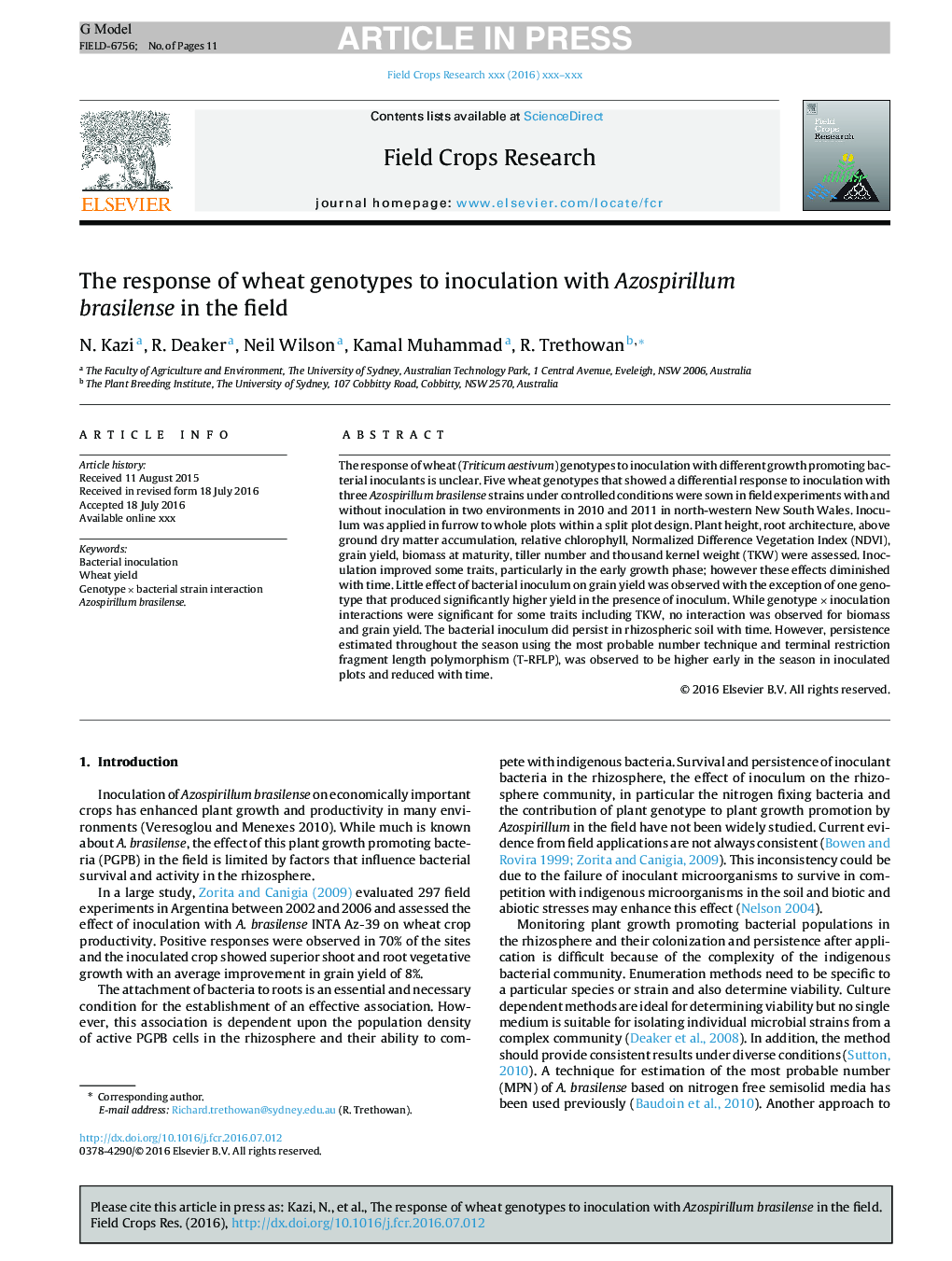| Article ID | Journal | Published Year | Pages | File Type |
|---|---|---|---|---|
| 6374562 | Field Crops Research | 2016 | 11 Pages |
Abstract
The response of wheat (Triticum aestivum) genotypes to inoculation with different growth promoting bacterial inoculants is unclear. Five wheat genotypes that showed a differential response to inoculation with three Azospirillum brasilense strains under controlled conditions were sown in field experiments with and without inoculation in two environments in 2010 and 2011 in north-western New South Wales. Inoculum was applied in furrow to whole plots within a split plot design. Plant height, root architecture, above ground dry matter accumulation, relative chlorophyll, Normalized Difference Vegetation Index (NDVI), grain yield, biomass at maturity, tiller number and thousand kernel weight (TKW) were assessed. Inoculation improved some traits, particularly in the early growth phase; however these effects diminished with time. Little effect of bacterial inoculum on grain yield was observed with the exception of one genotype that produced significantly higher yield in the presence of inoculum. While genotype Ã inoculation interactions were significant for some traits including TKW, no interaction was observed for biomass and grain yield. The bacterial inoculum did persist in rhizospheric soil with time. However, persistence estimated throughout the season using the most probable number technique and terminal restriction fragment length polymorphism (T-RFLP), was observed to be higher early in the season in inoculated plots and reduced with time.
Keywords
Related Topics
Life Sciences
Agricultural and Biological Sciences
Agronomy and Crop Science
Authors
N. Kazi, R. Deaker, Neil Wilson, Kamal Muhammad, R. Trethowan,
